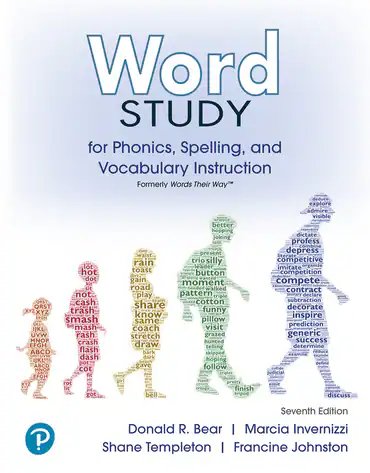What Does WTW Mean?
If you’re involved in elementary education, you’ve likely encountered the acronym “WTW.” While it might have various meanings online, in elementary ELA circles, WTW stands for “Words Their Way” – a revolutionary approach to teaching spelling, phonics, and vocabulary developed by Donald R. Bear, Marcia Invernizzi, Shane Templeton, and Francine Johnston.

What Is Words Their Way?
Words Their Way is a research-based approach to word study published by Pearson Education. Rather than relying on traditional memorization of spelling lists, this developmental spelling program helps students understand the patterns and relationships between letters and sounds.
In the 7th Edition, Words Their Way has rebranded to Word Study for Phonics, Spelling, and Vocabulary Instruction (formerly Words Their Way™). I will continue to refer to it as WTW or Words Their Way, as that is what most teachers will know it as.
Words Their Way is delivered as a series of books, supported by training and coaching, to help teachers implement the program effectively. The latest Word Study book can be purchased online.
Key Features of the WTW Approach
1. Developmental Stages
WTW recognizes that students progress through distinct stages of spelling development:
- Emergent
- Letter Name-Alphabetic
- Within Word Pattern
- Syllables and Affixes
- Derivational Relations
2. Word Sorting Activities
At the heart of WTW are word sorting activities where students categorize words based on common features, helping them discover spelling patterns naturally. There are many kinds of word sorting activities, including:
- Sound sorts
- Pattern sorts
- Speed sorts
- Concept sorts
- Speed sorts
They are organized into closed sorts (where the pattern is pre-established) and open sorts (where the student must discover the pattern themselves).
Other activities include:
- Activities like Word Hunt and Draw and Label
- A variety of word games that can be played individually, with a group, or as a whole class
3. Differentiated Instruction
The program allows teachers to meet students where they are, providing appropriate word study activities based on individual assessment results. Tools like Spelling Test Buddy can be used to assess and track progress to ensure students are receiving the appropriate level of support for their current level, while other tools like Worksheet Creator can help teachers create differentiated spelling worksheets and activities in seconds.
Benefits of Using WTW
- Students develop a deeper understanding of word structure
- Learning is hands-on and engaging
- Instruction matches students’ developmental levels
- Skills transfer to both reading and writing
- Research proves its effectiveness in improving literacy skills
Implementing WTW in the Classroom
Success with WTW comes from:
- Regular assessment of student needs, using tools like Spelling Test Buddy to assess and track progress
- Consistent practice with word sorts
- Differentiating students by level, and providing appropriate learning material based on their level
- Integration with reading and writing activities
- Maintaining organized materials
- Following the developmental sequence
Is WTW Right for Your Classroom?
WTW has become a cornerstone of literacy instruction in many schools because it works with, rather than against, how children naturally learn language patterns. While it requires initial investment in materials and training, the results often justify the effort.
Conclusion
WTW represents more than just another acronym in education – it’s a comprehensive approach to helping students become better spellers, readers, and writers through systematic word study. Whether you’re a veteran teacher or new to the field, understanding WTW can enhance your literacy instruction toolkit.
Looking for more information about Words Their Way (WTW)? Check with Pearson Education for the latest materials and professional development opportunities.
